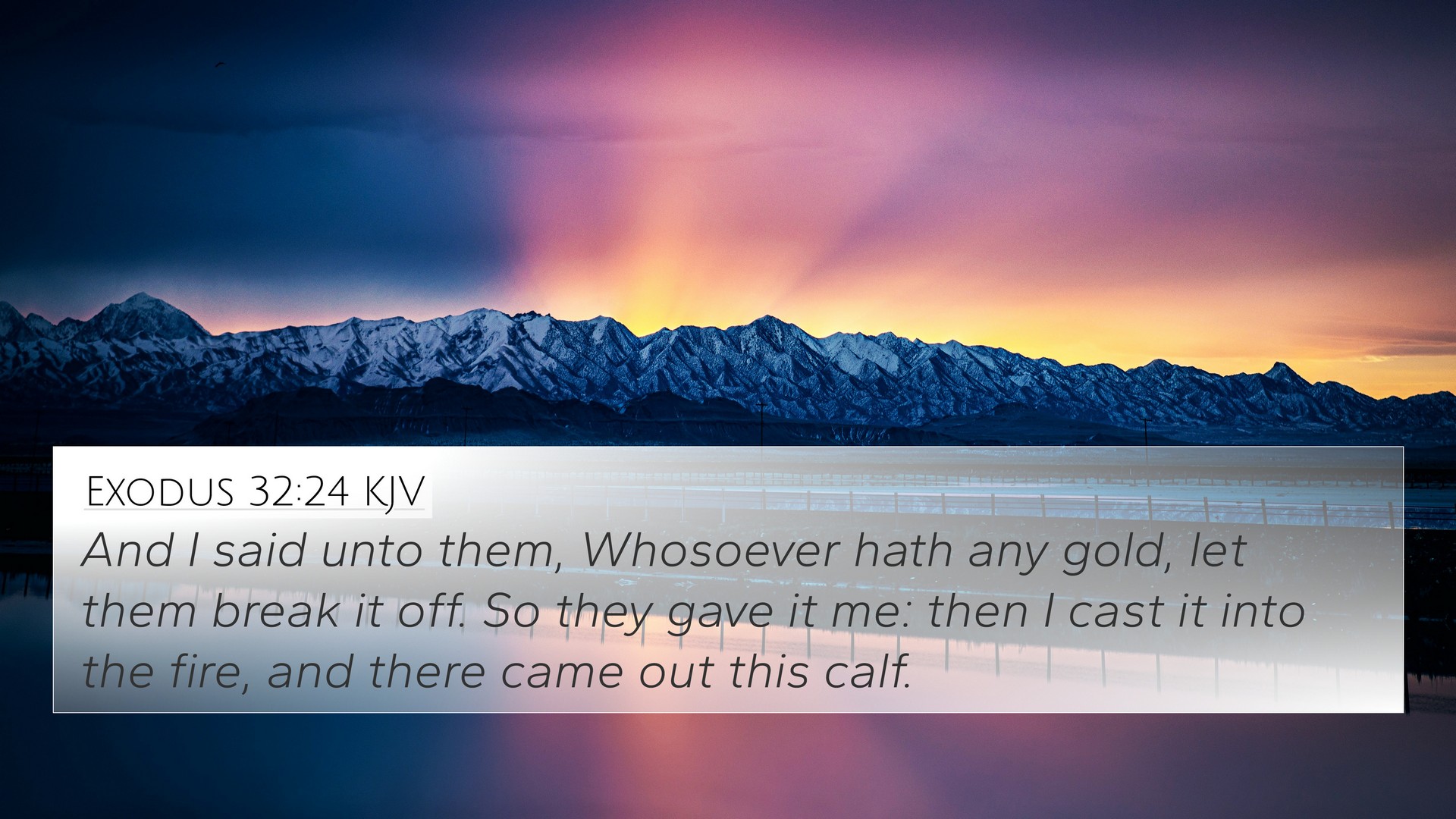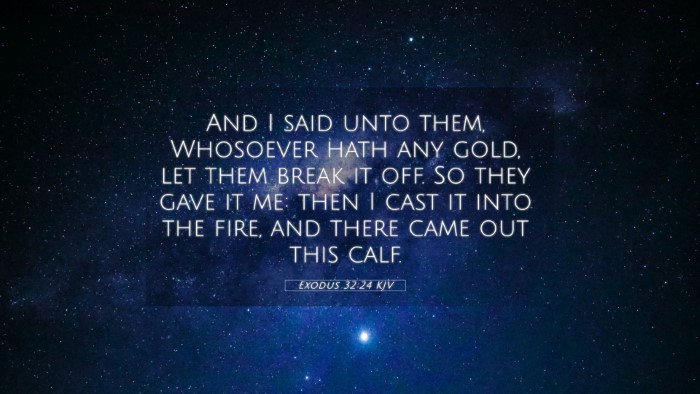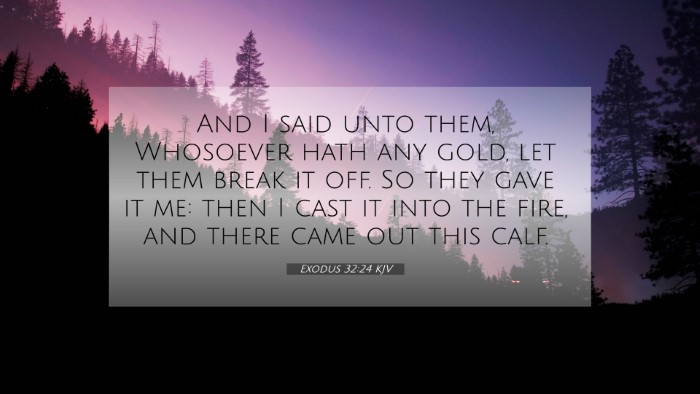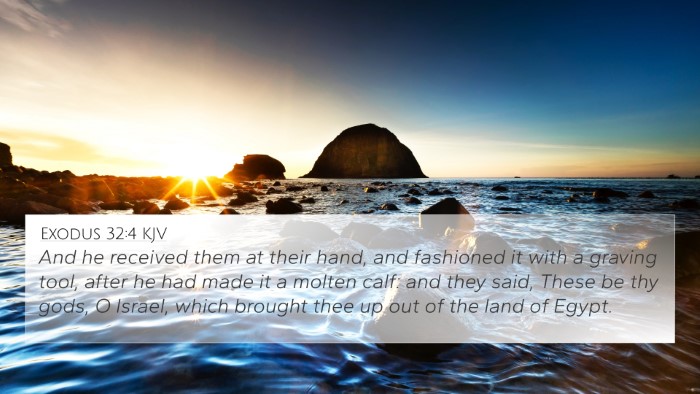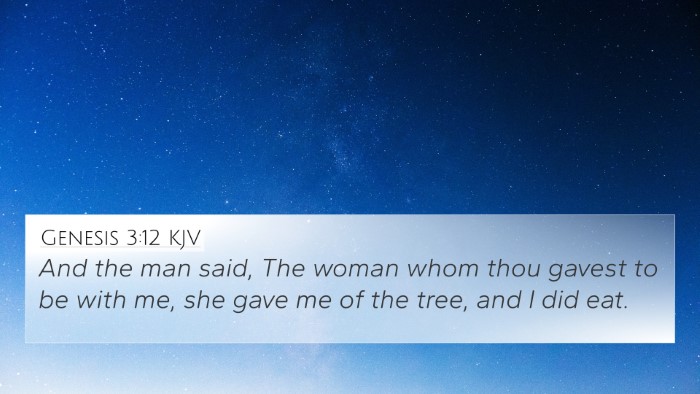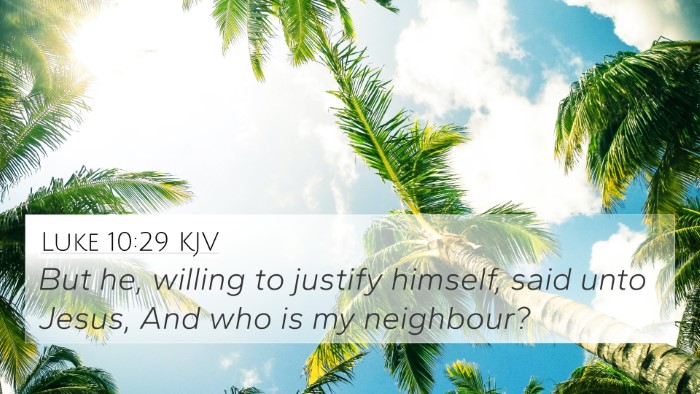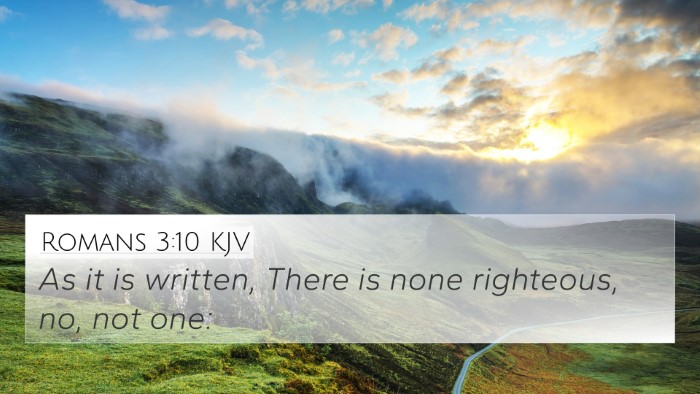Understanding Exodus 32:24
Exodus 32:24 states: "And I said unto them, Whosoever hath any gold, let them break it off. So they gave it me: then I cast it into the fire, and there came out this calf." This verse captures a significant moment in the narrative of the Israelites' rebellion against God while Moses was receiving the Law. This commentary will examine the meaning and implications of this verse through insights from notable public domain scholars such as Matthew Henry, Albert Barnes, and Adam Clarke.
Contextual Background
The events surrounding this verse occur shortly after the Israelites, led by Aaron, create a golden calf for worship during Moses' absence on Mount Sinai. This act was a breach of the covenant they had with God, illustrating human tendencies towards idolatry and rebellion.
Analysis of Exodus 32:24
The commentary from various scholars highlights several key interpretations of this verse:
- Matthew Henry's Commentary: Henry emphasizes the folly of idolatry, noting that the people quickly turned to a tangible representation of God instead of waiting for Moses. He explains that Aaron's role as the facilitator of this sin stems from his desire to appease the people.
- Albert Barnes’ Notes on the Bible: Barnes reflects on the nature of Aaron's words, suggesting that his admission of casting gold into the fire and producing the calf serves as an acknowledgment of the people's demand. It illustrates the ease of falling into idolatry when faith is weak.
- Adam Clarke’s Commentary: Clarke provides insight into the psychological aspects of the incident, interpreting Aaron's statement as part of a denial of personal responsibility. He suggests Aaron deflected blame by claiming that the calf’s appearance was a product of divine intervention through fire, rather than acknowledging his own culpability.
Thematic Connections
This verse opens discussions around broader themes within the Bible, specifically regarding idolatry and rebellion. It deepens the narrative of the human condition, reflecting the struggles of faith. Various scriptures can be cross-referenced to enhance the understanding of these themes:
- Exodus 20:3-5: "Thou shalt have no other gods before me." This commandment directly relates to the sin of idolatry present in Exodus 32.
- 1 Corinthians 10:7: "Neither be ye idolaters, as were some of them." Paul references these events in his exhortation to the Corinthians, warning against similar behaviors.
- Jeremiah 2:27: Reflects God's people turning to false gods, paralleling the incident with the golden calf.
- Psalms 106:19-20: Describes the event and its consequences, indicating the serious nature of idol worship.
- Romans 1:21-23: Discusses the exchange of the truth of God for a lie, linking it to humanity's proclivity towards idolatry.
- Acts 7:41: Stephen recounts this history in his defense, highlighting the stubbornness of the people.
- Hebrews 3:16-19: Reflects on the disobedience of Israel in the wilderness, drawing parallels to faithlessness.
Cross-Referencing Insights
Cross-referencing biblical texts reveals the interconnectedness of scripture and enhances our understanding of Exodus 32:24. Scholars have developed tools and methodologies for effective Bible cross-referencing, such as:
- Bible Concordance: A helpful resource for locating words and themes across the Bible.
- Bible Cross-Reference Guide: Guides that help users find verses that relate to specific themes or passages.
- Cross-Reference Bible Study: An approach to studying the Bible that focuses on thematic connections and verse parallels.
Conclusion
In conclusion, Exodus 32:24 serves as a poignant reminder of the dangers of idolatry and the consequences of turning away from God. Through comparative Bible verse analysis and thematic connections, one can gain a deeper appreciation for the narratives and teachings of the Bible. Understanding how this verse connects to others enriches one's spiritual journey and enhances the overall comprehension of biblical teachings.
